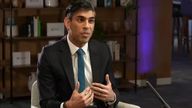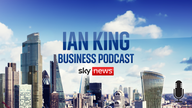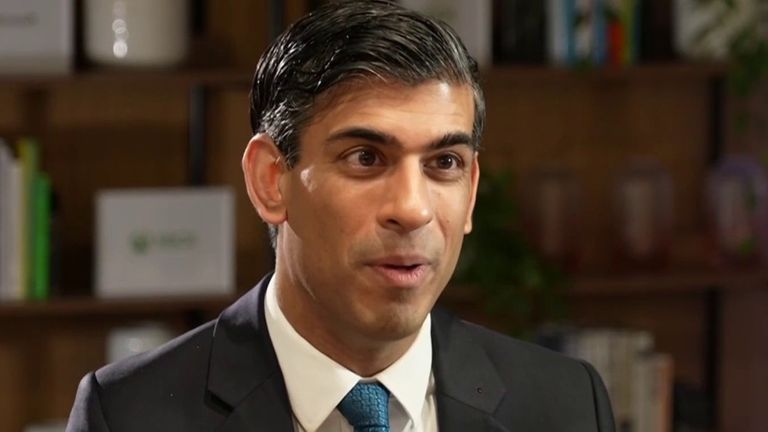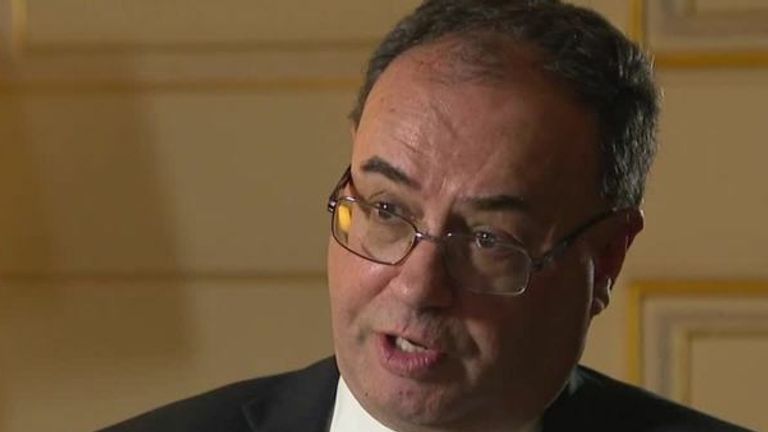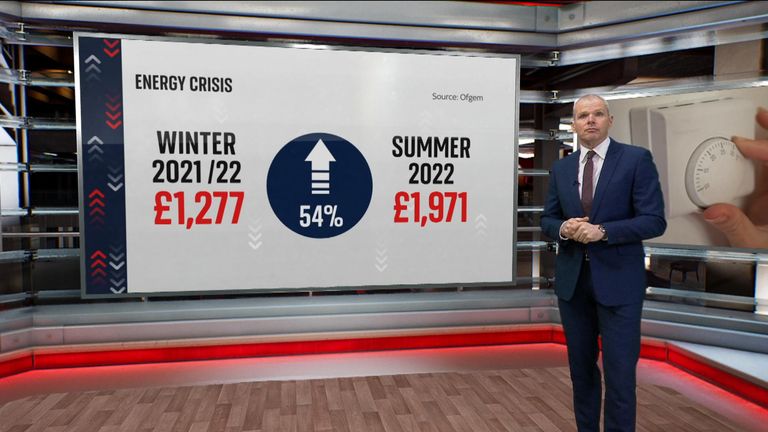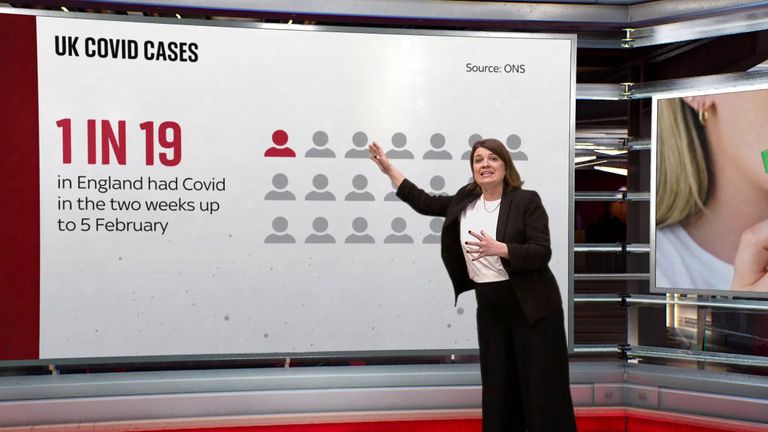Economic growth for 2021 strongest on record despite December Omicron hit
The economy grew at its best annual pace on record in 2021 despite a December hit from measures to control the spread of the Omicron COVID variant, early official estimates have revealed.
Data from the Office for National Statistics (ONS) showed the pace of growth between October and December – the fourth quarter – was largely static on the previous three months at 1%.
That was despite gross domestic product (GDP) contracting by 0.2% – slightly better than economists had expected – during December compared to the prior month.
The ONS pointed to lost business for hospitality and consumers bringing forward purchases for Christmas to October and November in anticipation of supply chain disruption and tighter COVID rules, including guidance to work from home, that were introduced in December to protect the NHS amid record case numbers.
It meant, the ONS said, that the economy grew by 7.5% over the course of 2021 though it remained 0.4% down on its pre-pandemic peak in the fourth quarter.
All its figures are subject to future revision but the bounce back in 2021 followed the deepest slump for 99 years in 2020 when the pandemic first took hold, plunging large parts of the economy into hibernation as lockdowns were introduced for the first time.
The government’s hope, looking ahead, is to live with COVID without the need for tough curbs on activity.
December’s Plan B restrictions in England were less harsh than the measures introduced in Wales and Scotland – all of which have since been mostly relaxed – and Downing St is planning to end all legal restrictions in England at the end of the month.
However, the impact of such a move could be limited in the short term amid signs the economy is straining under the weight of rising prices, as inflation is tipped to rise sharply from its highest level in 30 years currently.
After the Bank of England warned last week of a record slide in living standards ahead, separate data from the ONS on Thursday showed a third of businesses were recording lower than expected revenues – with almost two-thirds of accommodation and food services firms affected as consumers tightened their belts.
The UK economy is reliant on consumer spending as services accounts for four-fifths of output.
Budgets are facing the tightest squeeze from April when the energy price cap uplift of almost £700 takes effect while there is also no sign of an immediate easing in the global supply chain crisis that has dramatically forced up commodity and shipping prices.
Business groups responded to the ONS figures by declaring that they were masking a loss of momentum.
Chancellor Rishi Sunak said of the data: “Thanks to our £400bn package of support and making the right calls at the right time, the economy has been remarkably resilient; with the UK seeing the fastest growth in the G7 last year and GDP remaining at pre-pandemic levels in December.
“I’m proud of the resolve the whole country has demonstrated, and proud of our incredible vaccine programme which has allowed the economy to stay open.
“We’re continuing to help the economy rebuild through our Plan for Jobs, boost for business investment and support for households with the cost of living.”
CBI chief economist, Rain Newton-Smith, said: “Firms are still grappling with supply shortages and cost pressures, while households are facing a looming cost of living crisis.
“We’re caught in a low growth trap, and the only way to get out is a relentless focus on competitiveness.
“A 100% permanent investment deduction can trigger a chain reaction of business spending across the whole economy. And a future-focused approach to regulation and skills will be vital to help us avoid another lost decade of growth.”
